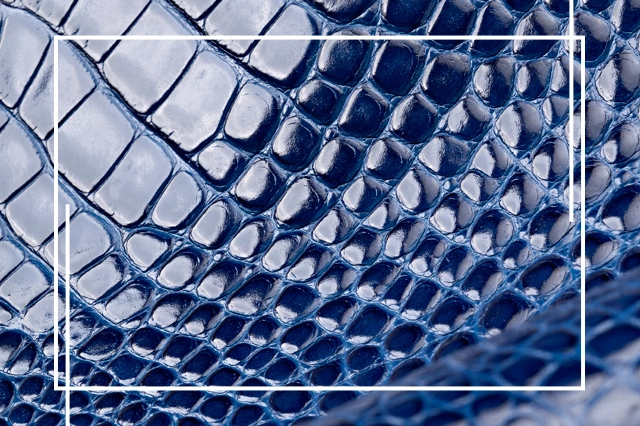An in-depth look at the study that highlights the biodegradability of leather in contrast to less sustainable alternatives.
In the ever-evolving world of fashion and sustainability, the search for materials that are both environmentally responsible and durable has never been more critical. A recent study conducted by A3 Leather Innovation Center of the University of Lleida, Spain, sheds a revealing light on this debate, especially when it comes to leather.
This article will go deep into the results of this study, contrasting the degradation of leather with that of “similar” materials. Keep reading to find out how leather is paving the way for a greener future.
Leather Degradation: What Does the Science Say?
Leather, a by-product of the meat industry, has been a mainstay in fashion and manufacturing due to its durability, aesthetics and now, its biodegradability.
Leather degradation is a natural process by which leather, an organic material obtained from animal skin, breaks down and returns to the environment under the action of microorganisms such as bacteria and fungi. This process is influenced by various factors. These include the type of leather, the treatment and tanning methods to which it has been subjected, and the environmental conditions to which it is exposed.
An Spanish Study of A3 Leather Innovation Center from the University of Lleida directly addressed the degradability of leather. He compared it with synthetic and biological alternatives, such as materials made from pineapple and cactus.
Comparing Degradation: Leather vs. Synthetic Materials
The researchers examined seven different types of finished leather against a synthetic material and two biological alternatives. The result? While the synthetic materials and biological alternatives barely registered any degradation after 90 days of analysis, leather samples showed total or partial degradation between 21 and 35 days, depending on the type of leather examined.
This result underlines the argument that leather, as well as being a durable and aesthetically pleasing material, is also better aligned with the principles of sustainability, as it degrades more efficiently and is less harmful to the environment.
By highlighting the degradation of leather, science provides us with a solid basis for re-evaluating the narrative around sustainable materials. The findings of this study emphasize the importance of choosing materials not only for their appearance or texture but also for their environmental impact over time. By understanding the degradability of leather, we can more deeply appreciate its value as a luxury product that is also a conscious choice for a greener future.
The Impact of Leather Degradation on Sustainability
The degradation of leather, when carried out in a controlled manner and under suitable composting conditions, can have a relatively low environmental impact. However, the improper disposal of leather in landfills can contribute to pollution, since anaerobic decomposition (in the absence of oxygen) generates methane, a potent greenhouse gas. In addition, especially the use of chemicals in chrome tanning, the tanning process can cause major environmental impacts if not managed correctly.
By absorbing this information, it becomes clear that the conscious use of leather takes advantage of a by-product that would otherwise be wasted.It also contributes to less waste accumulating in landfills, resulting in lower CO₂ emissions.
Alternative Materials: Why Aren’t They as Green as They Seem?
Alternative materials, especially those promoted as “green” or “vegan” have been gaining popularity as sustainable alternatives to traditional leather. However, the true sustainability of these materials is more complex than it seems at first glance. Despite celebrating their plant origins and lower direct impact on animal life, these alternative materials present challenges and limitations that can compromise their effectiveness as truly green solutions.
Many of these materials are derived from renewable plant sources. In theory, this suggests an environmental advantage compared to traditional leather or petroleum-based synthetics.
However, the production of these materials often depends on resource-intensive processes. Such as the use of water and land, as well as potentially involving harmful chemicals to transform the raw material into a usable material. The total environmental impact of these processes, including cultivation, harvesting, and production, can dwarf the perceived benefits of their biological origins.
The Future of Leather and it’s Importance of Sustainable Choice
As we know, the leather industry has been looking for ways to become more sustainable by adopting greener tanning practices and researching production methods that minimize environmental impacts.
While leather is known for its durability and ability to age gracefully, acquiring character and patina over time, synthetic materials often deteriorate less evenly and can become brittle or discolored irreversibly. This difference in durability influences the longevity and aesthetics of products. It also affects their life cycle and the frequency with which they need to replace items. As a result, it ends up increasing the volume of waste.
In addition, the development of alternatives to leather, such as the bio-based materials mentioned in the research, reflects a growing demand for sustainable products. However, the choice between leather and synthetic or biological alternatives must consider the product’s entire life cycle. This includes, for example, its production, use, and degradation capacity.
In short, leather degradation is an important aspect to consider when discussing sustainability in fashion and other industries that use this material.Understanding the balance between durability, environmental impact and biodegradability is essential to making more conscious and responsible choices.
The Courovale Initiative:Commitment to Sustainability
At Courovale, this commitment to sustainability is palpable. By adopting innovations and practices that ensure leather is produced in the most sustainable way possible, Courovale not only embraces environmental responsibility but is also a benchmark in the sector. In this way, it offers the market truly sustainable leather goods.
The recent study on the degradation of leather further reinforces the pride that Courovale and its customers feel in their choice of material. Through conscious and responsible management, leather transcends mere aesthetics, symbolizing progress toward a greener future.
In line with the findings of this study, Courovale proves that leather is the preferred choice not only for eco-conscious fashion enthusiasts but also for everyone who prioritizes sustainability we invite you to learn more about our environmental commitment and how we work to ensure that each product contributes to a healthier planet. Visit our sustainability page to explore our initiatives and find out how you can join us on this journey towards sustainability.





Comments are closed.